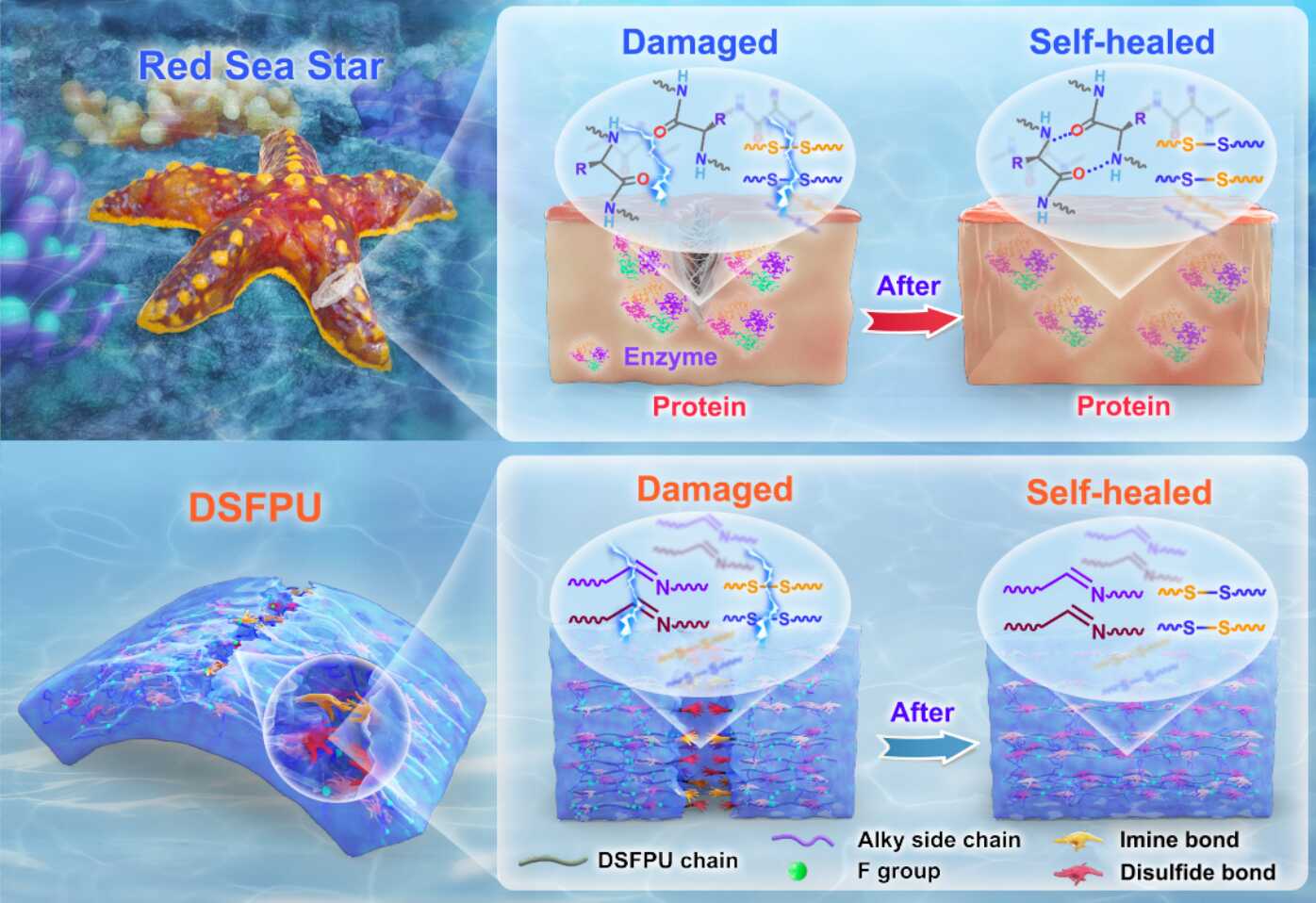A research team led by Prof. ZHU Jin and Prof. CHEN Jing at the Ningbo Institute of Materials Technology and Engineering (NIMTE) of the Chinese Academy of Sciences, in cooperation with the Korea Advanced Institute of Science and Technology, has synthesized a novel red sea star-inspired polyurethane, which can achieve rapid underwater self-healing. The study was published in Macromolecules.
Self-healing properties enable materials to autonomously repair structural and functional damage, significantly extending their lifespan while enhancing reliability and durability. Self-healing polyurethane has emerged as a promising candidate due to its flexible design and simple synthetic process.
However, water molecules disrupt dynamic bond exchange, slowing down the self-healing process. This impairment limits the application of self-healing polyurethane in aqueous environments, including underwater robotics and implantable medical devices.
Inspired by the biological mechanism of red sea stars, which exhibit impressive underwater self-healing capability driven by fibrinolytic enzyme secretion, the researchers designed a novel room-temperature, underwater self-healing polyurethane.
The integration of dual hydrophobic units with tandem dynamic bonds endows the polyurethane with impressive self-healing properties.
After 12 hours in water at room temperature, the scratch completely disappeared, with self-healing efficiency reaching 98% at a speed exceeding 33.33 μm/h.
In addition, this polyurethane can withstand a load of 500 g after self-healing, showing no signs of breakage.
The synthesized polyurethane exhibited outstanding biocompatibility, paving the way for its use in submersible robots, medical implants, and other healthcare applications under aquatic conditions.

The red sea star-inspired self-healing polyurethane (Image by NIMTE)






